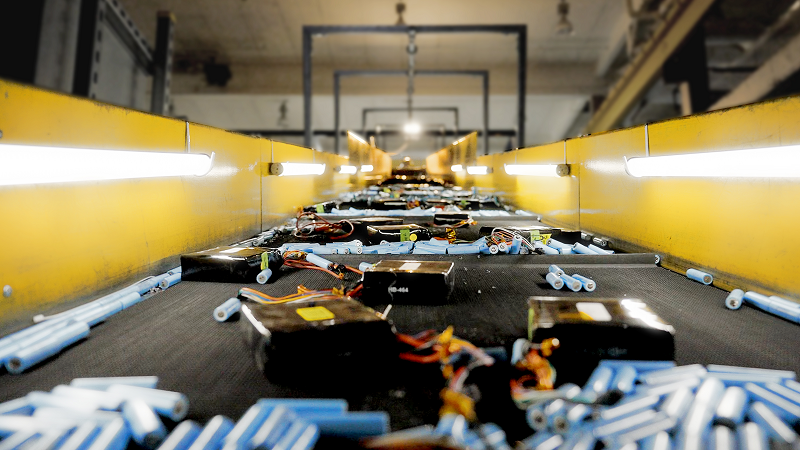



November 3, 2021



November 3, 2021
Original article published in Forbes
The immediate demand for lithium-ion (Li-ion) battery recycling in the U.S. is not eye-popping, but the road ahead has enticed investors to commit hundreds of millions of dollars this year to the space.
According to Li-Cycle, one of the larger companies created in recent years to extract metals from old batteries, the Li-ion battery recycling market in North America is set to grow from $257 million in 2020 to almost $1.8 billion by 2025. Trendlines show the number of electric vehicles, with battery packs that will need replacing eventually, on the rise. Of the 286.9 million vehicles on the road in the U.S. in 2020, 1.3 million were battery-electric vehicles and President Biden has a stated goal for half of the 17 million cars sold in the U.S. annually to be electric by 2030.
“The trend is just accelerating and more and more investments are going in,” said Michael O’Kronley, CEO of Battery Resourcers, a startup that has raised $90 million this year. “Battery manufacturers see that they need materials to go back into them, that it just doesn’t makes sense to keep importing these metals and materials from Asia.”
Automakers are already placing their bets. Battery Resourcers has backing from Jaguar Land Rover’s InMotion Ventures and formed a partnership with Honda to recycle batteries from its future EVs in the U.S. In September, Ford announced a $50 million investment in Redwood Materials and plans to work with it to create a closed-loop domestic battery recycling system. Ultium Cells, a joint venture between General Motors and LG Chem, has a partnership with Li-Cycle to recycle waste materials from battery production.
Comstock Mining projects that global lithium-ion battery manufacturing will require 1.8 million tons annually of lithium carbonate equivalent (LCE). That is roughly five times current lithium mining production globally and more than 15x the total LCE used in new EVs in 2020. Comstock is among a handful of miners who acquired recycling technology to be able to sell materials back into the supply chain.
“We are still an extraction company, but the opportunity with batteries is enormous,” said Corrado De Gasperis, Comstock’s executive chairman and CEO.
Private companies ready for commercialization – such as Battery Resourcers and Redwood Materials, which has raised more than $750 million this year – have been awash in capital. Special purpose acquisition companies may also play a part in providing significant capital on the long path to revenue.
Battery recycling companies vary greatly in the techniques used to harvest value from spent cells, the feedstocks they use and the mechanics of the process. Redwood Materials, the startup led by Tesla co-founder J.B. Straubel, is positioning itself as a broader recycler of e-waste. Battery Resourcers is among those engaging in more elaborate processes to produce higher-value materials such as cathodes. Aqua Metals is applying a patented water-based process, while others heat materials to extract metals such as lithium, nickel and cobalt.
“We’re going to see a bunch of new entries coming in – and eventually there will be some clear leaders,” O’Kronley said. “Ultimately it will come down to the process efficiency and unit economics.”
